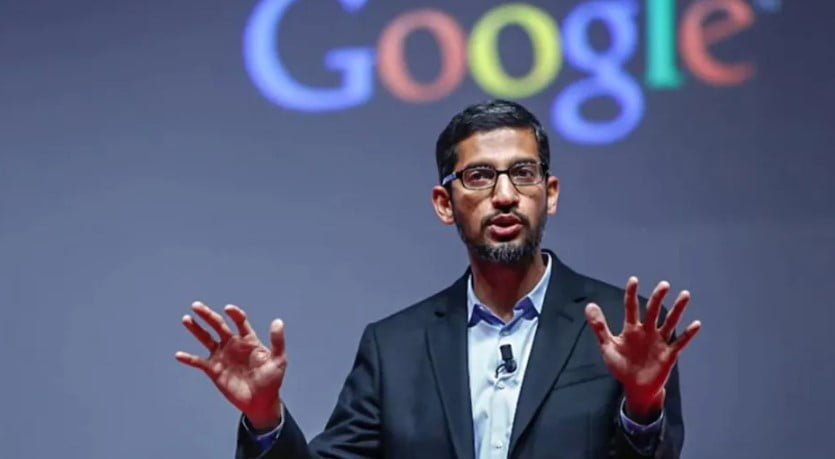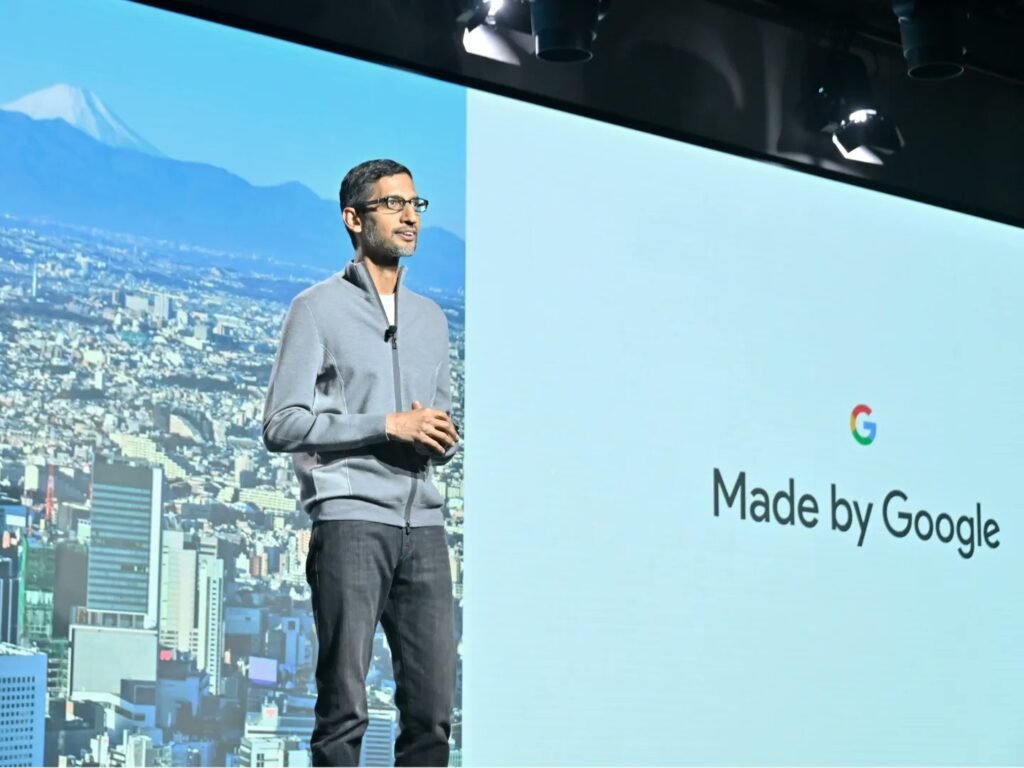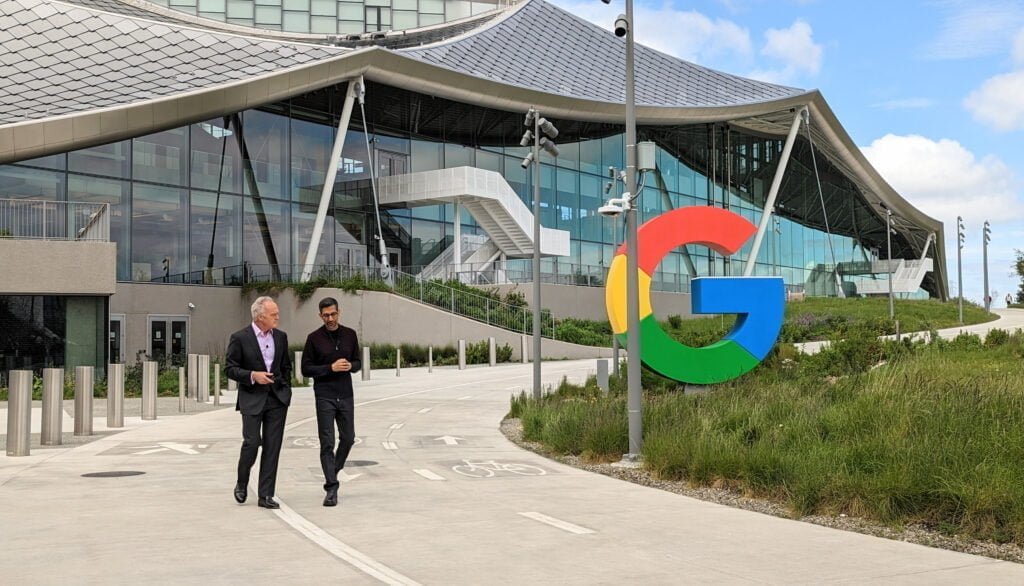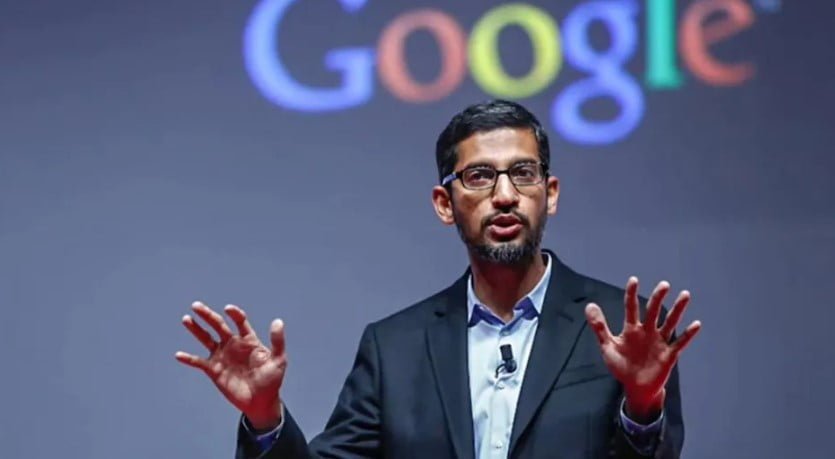Google’s CEO has expressed his concerns about the risks of artificial intelligence (AI) and its potential for harm if not used responsibly. Sundar Pichai emphasized the need for a comprehensive global regulatory framework, drawing parallels to the treaties in place for nuclear arms control. He cautioned that the race to develop AI technology should not overlook safety concerns, as the negative implications of AI weigh heavily on his mind, keeping him awake at night.
“It can be very harmful if deployed wrongly, and we don’t have all the answers there yet – and the technology is moving fast. So, does that keep me up at night? Absolutely,” Pichai said of AI in an interview on CBS’s 60 Minutes program.

Alphabet, the parent company of Google, is the owner of the UK-based AI company DeepMind, and it has recently introduced an AI-powered chatbot called Bard in response to the success of ChatGPT, developed by US-based tech firm OpenAI, which has gained immense popularity since its launch in November. Pichai stressed the need for governments to establish global regulatory frameworks to effectively regulate the development of AI as it progresses.
Last month, a letter signed by numerous AI experts, and researchers, including Elon Musk, owner of Twitter, called for a temporary halt in the creation of “giant” AIs for at least six months, citing concerns about the potential loss of control.

Pichai acknowledged the need for frameworks for AI similar to those in place for nuclear arms, stating “We would need that.” Notably, the technology behind ChatGPT and Bard, known as a Large Language Model, is trained on extensive data from the internet, enabling it to generate responses to user prompts, such as poems, essays, and code. Similarly, image-generating systems like Dall-E and Midjourney have drawn both concerns for their ability to produce realistic images, such as the pope wearing a puffer jacket.
Pichai pointed out the potential harm of AI in generating disinformation, saying, “It will be possible with AI to create, you know, a video easily. Where it could be Scott [Pelley, the CBS interviewer] saying something, or me saying something, and we never said that. And it could look accurate. But you know, on a societal scale, you know, it can cause a lot of harm.”

The Google chief assured that the current version of Google’s AI technology, accessible to the public through the Bard chatbot, is safe. He also mentioned that Google is being responsible for withholding more advanced versions of Bard for thorough testing. However, Pichai’s comments come as the New York Times reported that Google is developing a new AI-powered search engine in response to Microsoft’s Bing, which has integrated chatbot technology similar to ChatGPT.
Pichai further admitted that Google does not have a complete understanding of how its AI technology generates certain responses, explaining, “There is an aspect of this which we call, all of us in the field call it as a ‘black box’. You know, you don’t fully understand. And you can’t quite tell why it said this, or why it got wrong.” When questioned by CBS journalist Scott Pelley about why Google had released Bard publicly despite not fully understanding how it worked, Pichai compared it to the fact that humans do not fully comprehend how the human mind functions either.
Pichai stated that society may not be fully prepared for the rapid advancements in AI and mentioned a “mismatch” between the pace of societal adaptation and the evolution of AI.

But then, he expressed optimism that people are becoming more aware of the potential dangers of AI at an early stage compared to other technologies. Of the economic impact, Pichai alleged, “This is going to impact every product across every company and so that’s why I think it’s a very, very profound technology.” He used the example of how AI could assist radiologists in prioritizing cases in the next five to ten years, and how “knowledge workers” such as writers, accountants, architects, and software engineers would also be affected by AI technology.

